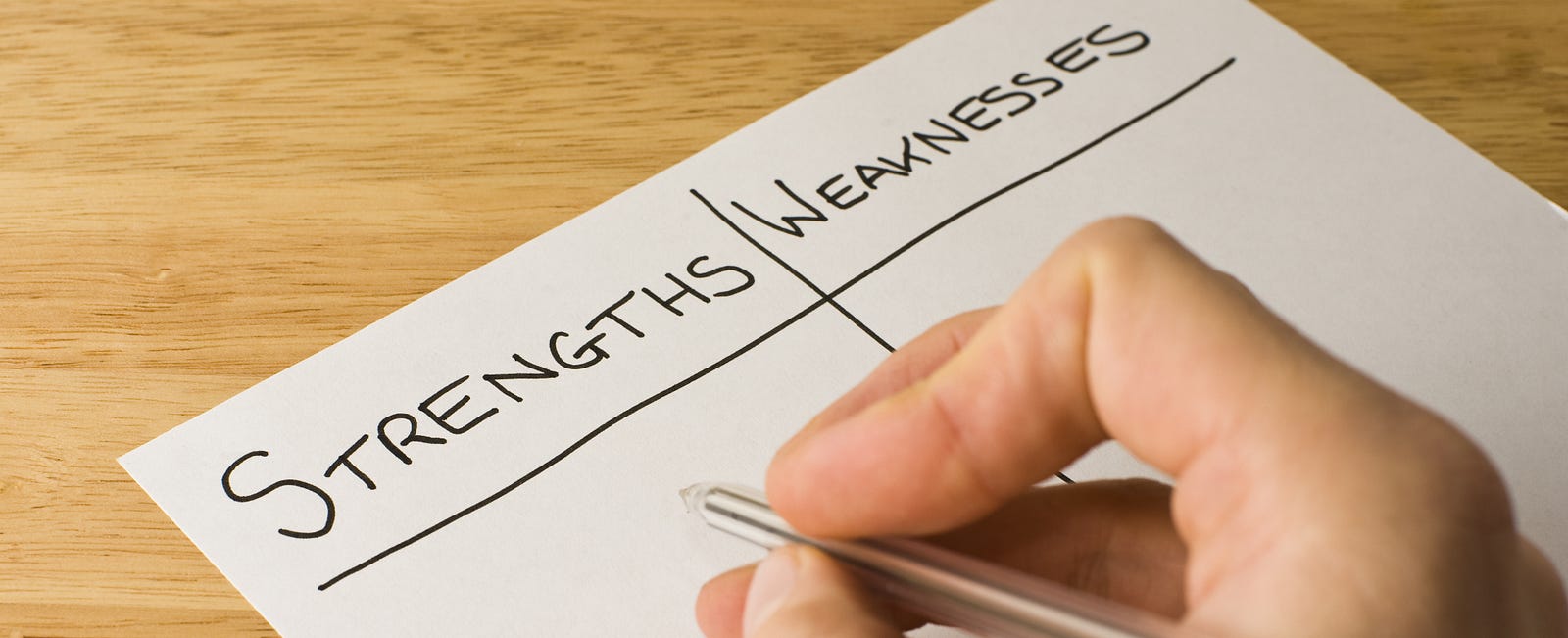Some time ago we held a webinar —The Role Personality in Relationships and Careers — and the psychology team at Traitify explored how understanding one's personality can lead to more satisfying decisions in work and love, and an overall more meaningful life. However, for most of us, when we think about the question, "Who Am I?," we think about our preferences — the things we love and that make us happy, and our traits — the characteristics about ourselves with which we strongly identify — outgoing, friendly, kind, shy. This is a good place to start, and certainly helps build a picture of self-understanding. Sometimes even more important, however, are the traits we are less proud of when it comes to really knowing ourselves in order to make the best decisions.

Our present culture doesn't put a lot of emphasis on weaknesses when it comes to knowing oneself. If we take our approach to raising children, for instance, many millennials grew up in a world where there were no clear winners or losers, everyone got a "participation" trophy, and educators and parents focused on a strengths perspective. Don't get me wrong, raising children to have good self-esteem and feel good about themselves is crucial, but this perspective often continues into adulthood. In graduate school job interview preparation workshops, new job seekers are often given tips on how to answer that all too common yet dreaded interview question, "what is your biggest weakness?" They learn how to put a positive spin on it — "well, I can be a perfectionist," pointing out what could very well be interpreted as a strength. What if, instead, new graduates were taught to look for jobs where their weaknesses weren't an issue in the first place? Denying we have weaknesses doesn't mean they aren't there. So, we are faced with a choice: is it better to try to avoid flaws and dance around them, or to own them and make them work for you?
Let's look at an example from work. A young man goes to look for his first job. He knows from his time in school that he has a short attention span and has a hard time sitting still all day. He often was scolded in the classroom for these behaviors and really wants to hide them from his future employer, fearing these qualities might reflect poorly of him. In other words, he wants to highlight his strengths. If he applied for a job in an office, say taking phone calls or working with books and numbers, one can imagine these "weaknesses" could get in his way. Not only would he not find this to be meaningful or satisfying work, but his performance in that kind of job likely would not be reflective of his true potential. However, if he had understood more about his perceived "flaws" and owned them instead of trying to hide them, this same man might have applied for a job that was fast paced and allowed him to be on his feet, in a field such a sales, or contracting. There he would find that his ability to shift from one topic to the next and keep up in a fast-paced environment is exactly what is necessary to get the job done. It's a win, win — he is happier in this type of job, and his employer has an employee who excels in the very skill set needed. All of a sudden, these "weaknesses" become strengths, not because he spins them, but because he has picked a field that is truly well suited for him based on his entire personality. Woofound by Traitify, a career discovery platform, seeks to assist users do just this — evaluate their strengths and weaknesses to help make the best decision about which jobs to seek in the first place.

Will it always be this easy to make weaknesses work for you? Probably not. In psychotherapy, we often work with clients who seek assistance because there are aspects of themselves that are getting in the way of their happiness, but they need help identifying what these difficulties are in the first place. Only then can the work of understanding these problems and making allowances for them begin. However, each step in this direction can be a helpful opportunity for self-evaluation. If it just doesn't feel right, it probably isn't. And if it's hard to understand why, instead of wondering why your strengths aren't playing to the situation, it might help to think about your weaknesses. Perhaps then, once they come to light, they can truly be turned into strengths.
For more information about Traitify, click here.





